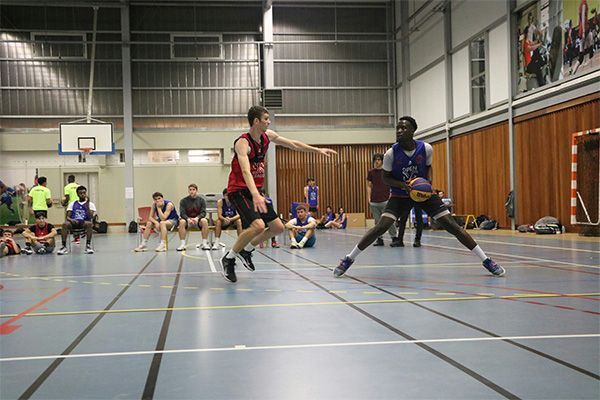
Becky Meline, LIMHP MGCP
For many athletes, the dream of playing at the next level is both exciting and overwhelming. Junior year is a huge year both academically and athletically if you have a child interested in playing at the next level. The college recruitment process is filled with opportunities, but it also brings its fair share of stress, distractions, and comparison. To help you navigate this journey with confidence, here’s a roadmap that balances the practical side of recruiting with the mental and emotional skills needed to thrive.
Know Your Path and Set Goals
The first step in the recruitment journey is clarity. I tell my athletes that this is the “information gathering stage”--- Ask yourself:
- What level of college athletics am I realistically aiming for (Division I, II, III, NAIA, JUCO)?
- What type of school environment do I want academically and socially?
- How far from home am I comfortable going?
- Do they have the major that I am interested in studying?
- How much does it cost to go there in case I don’t get a full ride?
Setting goals not only gives you direction but also helps you avoid distractions. When you know what you’re aiming for, it’s easier to tune out noise and comparison. This starts to give you a direction when you feel overwhelmed with where to start.
Market Yourself Effectively
College coaches don’t just “find” athletes anymore—you need to put yourself out there. Here’s how:
Highlight videos: Create a short, clear highlight reel showcasing your best plays and skills. Keep it professional and concise.
Player profile: Prepare an athletic résumé that includes stats, GPA, academic honors, contact info, and coach references.
Social media presence: Keep your accounts clean, professional, and reflective of your character. Coaches notice how you present yourself online.
Remember: marketing yourself is about showing your strengths, but also about being authentic. Coaches want athletes who fit their culture, not just highlight reels.
Master the Conversation with Coaches
Talking with college coaches can feel intimidating, but preparation helps. This is one of the biggest stressors for my athletes--knowing how to present themselves and what to say.
- Be respectful and direct: Always address coaches properly, thank them for their time, and be clear in your communication.
- Ask good questions: Inquire about team culture, academic expectations, and how they see you fitting into their program. I encourage my athletes to look into the program before you have a phone call so that it shows your level of interest in the school.
- Follow through: If a coach asks for film, transcripts, or updates, send them promptly. Reliability speaks volumes.
Confidence comes from preparation. Practice with your high school or club coach, or even role-play conversations with a parent, so you’re ready when opportunities come.
Handle the Mental Side of Recruiting
The recruiting process can easily weigh on your mental health if you don’t protect yourself. Here are some common challenges—and strategies to handle them:
Social Media Comparison
It’s easy to scroll and see other athletes posting their commitments or offers and wonder, Why not me? Remember: everyone’s journey looks different. Instead of comparing, focus on your growth and opportunities. Celebrate others, but stay committed to your own path.
Balancing Recruiting and Your Season
Recruiting can feel like a full-time job. But your number one priority should always be your high school or club season—keep in mind that is where you are getting the highlight reels to send out! Coaches want to see you competing at your best, not burned out by the pressure of emails and highlight videos. I encourage my athletes to set aside designated times each week to handle recruiting tasks so it doesn’t take over your life. Whether that’s an open period you have each week or Sunday afternoons for a couple of hours—compartmentalize your time because you can only put your energy into one thing at a time. I tell my athletes that “no matter how well you worry about recruiting during school, practice or games, it is just wasted energy in that moment” so save it for your designated time.
Managing Stress and Distractions
Recruiting brings highs and lows—some coaches may show interest, others may not—and that doesn’t mean you’re not good enough. It’s important to stay grounded:
- Practice mindfulness or breathing exercises before games.
- Lean on trusted adults for perspective.
- Keep a journal of small wins to remind yourself of progress.
Remember the Bigger Picture
At the end of the day, recruitment isn’t just about where you play or what Division you’re in—it’s about where you’ll grow. The right program is one where you’ll thrive athletically, academically, socially and personally. Stay patient, keep working, and trust that the right fit will come.
Final Thoughts
The college recruitment journey is as much about mental resilience as it is about athletic talent. With a clear roadmap—setting goals, marketing yourself, preparing for coach conversations, and protecting your mindset—you can move through the process with confidence. Focus on what you can control, enjoy the ride, and remember: your worth isn’t defined by an offer, but by the effort, character, and dedication you bring every single day.









